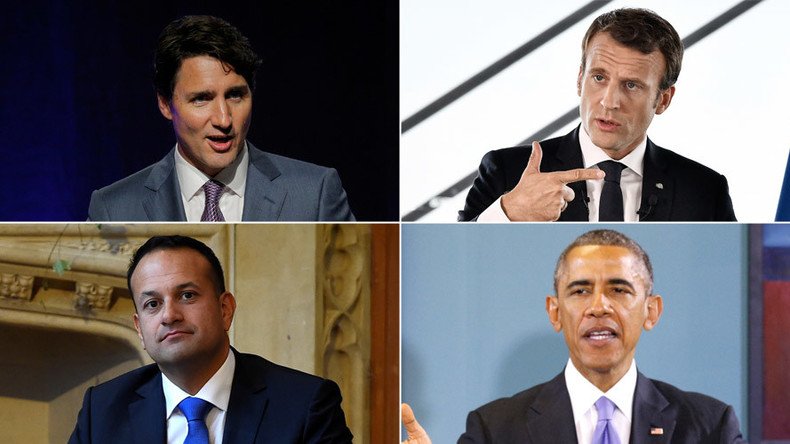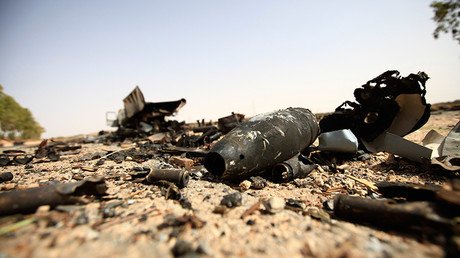Obama's liberal disciples prove better campaigners than leaders

A very noticeable feature of contemporary politics is the tendency for young liberal politicians, often with extraordinary campaigning skills, to enter office on a wave of expectation and then bomb in the job.
From the base of the victory column in Berlin’s Tiergarten, looking out toward the Brandenburg Gate, he addressed the excited crowds. Like a suited messiah, the senator from Illinois held the attention of around 200,000 people, promoting a brighter, and more liberal, future for the West.
His name was Barack Obama, and he promised a new political era. One built on kindness, understanding and, most importantly, peace. A few months later, he won the US presidency and wound up dropping 26,171 bombs on seven countries in 2016. All the while overseeing a growing surveillance state, which, incredibly, hacked the phone of Angela Merkel, the German chancellor who had allowed him the podium on that hot day in July 2008.
On Obama’s watch, disastrous American-led interventions in Libya and Syria further destabilized the Middle East and North Africa. Which, in turn, fueled the 2015 migrant crisis which threatens European unity today. In Ukraine, his Washington openly supported a 2014 coup, which overthrew a fairly elected, if corrupt, government and created the conditions for a brutal civil war. Also, in a bitter irony, State Department apparatchiks helped install a US-backed regime in Kiev which is even more crooked than the one it replaced.
In Asia, Obama sat on his hands for two terms, refusing to engage with the North Korea issue. Thus, today the isolated dictatorship is a far greater danger than it was in 2008, and its belligerence is now backed up by nuclear weapons. Domestically, the former president’s agenda has already been largely overturned by his successor, Donald Trump. A man elected mainly because the Democratic Party chose a deeply unpopular nominee, Hillary Clinton, who was enthusiastically supported by Obama.
By The Wall
Nine years ago, in Berlin, things were going to be much different. Obama spoke humbly, explaining how America’s “actions around the world have not lived up to our best intentions.” And outlining his vision for a “world that stands as one.”
Of course, what the future president actually meant was a planet dominated by America, where its values were the only ones permissible, and alternatives didn't exist. An earth where a government’s embrace of liberal totems, such as same-sex marriage and large-scale immigration mattered more than its duty to the citizens it was elected to represent.
The result of Obama’s arrogance, inflexibility and obstinacy was the emergence of a 'Cold War lite.' With decades of progress between Washington and Moscow erased through bombastic obduracy. Meanwhile, his failure to tackle domestic inequality, and listen to the concerns of the American heartland opened the door for Trump. A figure with zero political experience who is mostly reviled internationally.
And this is Obama’s legacy. He left so many Americans feeling disenfranchised that he paved the way for a preposterous clown president to succeed him. Meanwhile, America’s stock has arguably never been lower abroad. Some endowment from a man who promised the sun, moon, and stars.
Despite his failure, Obama’s uber-liberal savvy spawned a host of imitators. And most of them have aped their mentor by being great campaigners but useless leaders, once in office.
The B-Team
In Britain, David Cameron, despite his privileged upper-class background, spun himself as a progressive, dynamic prime minister for the 21st century. However, his tenure was a disaster for his country. During his six year rule, the old-Etonian almost killed off the UK itself, narrowly surviving a vote on Scottish independence. But the real damage was done when his calamitous campaign to keep his country in the European Union backfired. Therefore, “call me Dave” will always be remembered as the PM whose pandering to short-term party political interests eventually created the conditions for “Brexit.”
Another Obama clone is Canada’s Justin Trudeau. This scion of a liberal dynasty has managed to position himself as a candidate of change and sort of outsider, while, his charm and impressive campaigning skill channel a younger Barack. Yet, in office, the inevitable has happened. While his warm welcome for refugees, positive reaction to women’s rights, and moves toward the legalization of soft drugs have made him an international liberal darling, it hasn’t been reflected in support at home.
So, we have a bizarre situation where four in ten Americans would like him to be US president, according to an Ipsos poll, but his domestic ratings are cratering, with his approval figures down between nine and ten points from June 2016 to June 2017.
Another leader of this ilk is Irish Taoiseach (premier) Leo Varadkar. The openly-gay son of an Indian immigrant father ticks most of the socially tolerant boxes. Nevertheless, his economic ideology is resolutely Thatcherite and is already threatening his very position. Because, with Ireland in the midst of a housing crisis and homeless people literally dying on the streets, his administration continues to believe “the market” will cure the problem. This callousness means his days may already be numbered, especially given how, like his jogging-buddy Trudeau, he’s perceived already as a man obsessed with style rather than political substance.
After today's Dail business joined @JustinTrudeau for quick jog through #PhoenixPark. Now off to Dublin Castle for evening business pic.twitter.com/irb1nnmj9I
— Leo Varadkar (@campaignforleo) July 4, 2017
Still, the biggest disappointment of them all may turn out to be France’s Emmanuel Macron. Especially given how, rather than taking over a well-established party, he created his own movement from scratch. This success was seen as a victory for progressive values during a time of panic over the ascent of right-wing populism. And Macron promised big changes as he sought to restore French greatness.
But now, with figures of around 30 percent, Macron is even less popular with French voters than Trump is in America, with the Washington Examiner citing the “growing consensus in the French media that he is vain, glib, and naive; a child who hasn't the emotional maturity to govern a student body, much less an entire nation” as the reason.
We live in strange times where young, seemingly dynamic, legislators are proving themselves adept at grandstanding and campaigning, yet unable to govern competently afterwards. A trend which started with Obama and has now gone global. Leaving the likes of Germany and Russia, with their experienced and nationally popular leaders, looking like outliers in a world of flux.
In an era where social media is king, the ability to talk a good game has become more important than the ability to play it. Consequently, choppy waters may lie ahead in Berlin and Moscow when Merkel and Vladimir Putin eventually step aside.
The statements, views and opinions expressed in this column are solely those of the author and do not necessarily represent those of RT.














